
African American Literature 1619-1926
- Subject:
- Literature & Culture
- Material Type:
- Primary Source
- Author:
- Carolyn Shuttlesworth
- Date Added:
- 06/29/2020

African American Literature 1619-1926
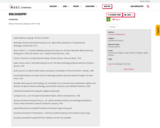
African American Literature 1619-1926
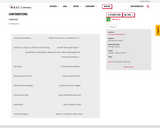
African American Literature 1619-1926
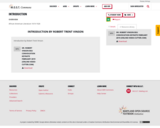
African American Literature 1619-1926
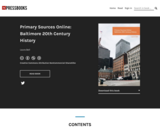
Learning about primary sources in an archives where students can see and examine materials is a unique opportunity. This exercise aims to provide a similar level of hands-on active learning while students attend a synchronous class online.
This text is intended to help students understand how to use primary sources and how to research at the University of Baltimore Special Collections & Archives in order to explore potential research topics regarding 20th century social history, arts history, cultural history, and more, in Baltimore, Maryland. The class activity is designed to be completed synchronously in an online learning environment using video conference tools such as Zoom in order to provide students with a collaborative group based experience.
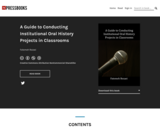
This guide outlines how to conduct an online oral history project with an institutional focus in a classroom. This guide using content from The University of Baltimore's Special Collections and Archives collections in examples.
Conducting an oral history project enables students to engage in a real history research project that improves their research, writing, communication, and listening comprehension skills and abilities. The students will be able to better understand the past and recognize that examining the past events is not always straightforward, and each story provides an intimate portrait of the past that is unlikely to be revealed otherwise. This guide can be used in a public history course as a final term project to be completed over the course of the semester.
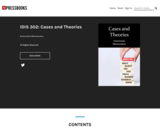
This course has been designed expressly for you. It is your course. It’s about you, your life and the world you live in. For those reasons it may be the most relevant course you will take in your college career. How is this course relevant to your life? Well, if you consider personal happiness relevant; and if you think it’s important to develop your own thoughtful opinions about what is good and evil, right and wrong; and if you think it is important for you to make the right moral choices in your personal and professional lives, then you will find this course to be very relevant to how you want to live your life. We’ll be looking at a multitude of ethical issues that may arise from the following topics in our personal and professional lives. For example, the nature of evil, alcohol and drug abuse, social media, family values, the value of friendships, sex & love, workplace cultures, co-workers, bosses, customers & clients, advertising and marketing, racism & sexism in the workplace, the economy & political leadership, war and terrorism, the Global Village, and the natural environment. You’ll be asked to think through the ethical issues that arise from
the above topics (and others) and to justify your own decisions about what is right or wrong in case studies or scenarios involving these topics.
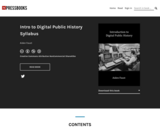
This course syllabus explores the practice of public history in the digital realm. Students will learn what public history as an academic sub-field is, how it is influenced by internet cultures, and consider its application outside of university settings. Special emphasis will be placed on experiential learning in this course, with a focus on digital oral history as one form of public history practice. Oral history. Students will learn to research and conduct their own online oral history interview.
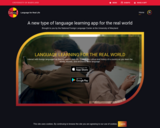
Lectia! is a free language learning mobile app developed by the National Foreign Language Center (NFLC) at the University of Maryland. It has lessons for beginner, intermediate, and advanced learners, all based in real-life content created by and for native speakers. Learners explore the culture and history of a country as they learn the words, sounds, and structures of its language.
Select a language, a level, and a goal, and get started. Monitor your progress on the dashboard.
Currently available through the Apple App Store and Google Play.
Choose from 19 languages: Arabic, Bosnian, Burmese, Chinese, Croatian, Dari, French, German, Greek, Indonesian, Korean, Pashto, Persian, Portuguese, Russian, Serbian, Spanish, Thai, or Vietnamese.
Other features:
- Multimedia lessons to supplement in-class learning
- Transcript and translation
- Highlighted text-tracking to follow along with the audio
- Content and background notes
- Extensive glossary list
- Challenging comprehension, vocabulary, and grammar activities that increase in difficulty as you progress
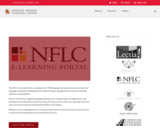
The NFLC e-Learning Portal is a catalog of over 7,000 free language learning materials across dozens of languages and dialects developed by the National Foreign Language Center, with more materials added on an ongoing basis.
Items in the Portal are tagged by language, difficulty level, modality, topic, and objective for easy searching. Items include compact learning objects (five short lessons on a single topic), video learning objects, thematic units, and assessment objects.
Use the bookmark feature to create a list of materials to refer to at a later date. Save and share your lists by using one of the download PDF or CSV options.
Current languages (including multiple variants/dialects): Afaan Oromo, Albanian, Amharic, Arabic, Azerbaijani, Azeri (Northern), Balochi, Bosnian, Brahui, Bulgarian, Cebuano, Chavacano, Chinese, Croatian, Czech, Danish, Dari, Fijian, French, German, Greek, Hausa, Hebrew, Hindi, Hindko, Hungarian, Igbo, Indonesian, Italian, Japanese, Korean, Kurdish, Malay, Pashto, Persian, Polish, Portuguese, Pothohari, Punjabi, Russian, Saraiki, Serbian, Shona, Sindhi, Somali, Spanish, Swahili, Tagalog, Tajik, Tamil, Tausug, Thai, Tigrinya, Tongan, Turkish, Uighur, Ukrainian, Urdu, Uzbek, Vietnamese, Yoruba, Zulu
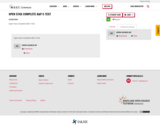
Open Stax Complete A&P e-Text
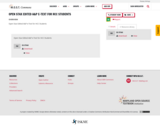
Open Stax Edited A&P e-Text for HCC Students
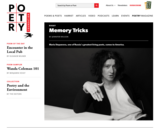
This site includes a variety of poems, biographical information, and other educational resources available for free. Content available on the site are not licensed as OER. For more information, please see the websites terms of service: https://www.poetryfoundation.org/foundation/terms-of-service

This is a semester long project that introduces students to historical methods, primary sources, original research, and the differences between quantitative and qualitative research.

The goal of this book is to teach you to think like a computer scientist. This way of thinking combines some of the best features of mathematics, engineering, and natural science. Like mathematicians, computer scientists use formal languages to denote ideas (specifically computations). Like engineers, they design things, assembling components into systems and evaluating tradeoffs among alternatives. Like scientists, they observe the behavior of complex systems, form hypotheses, and test predictions.
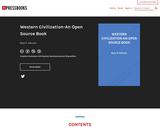
This textbook is intended to meet the curriculum requirements for St. Clair County Community College's HIS 101 course through the use of primary source content. Topics covered include ancient Greece, ancient Rome, the rise of Christianity, the Middle Ages, the emergence of Islam, and the Renaissance.
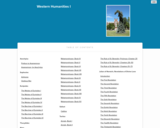
Primary literary resources for Western Humanities I

A government sponsored website, American English is a resource center for teaching and learning about American English language and culture. This website provides a variety of engaging materials and resources for teachers' professional development and for students in the classroom. Both teachers and students will find new ways to practice English and learn more about the United States.